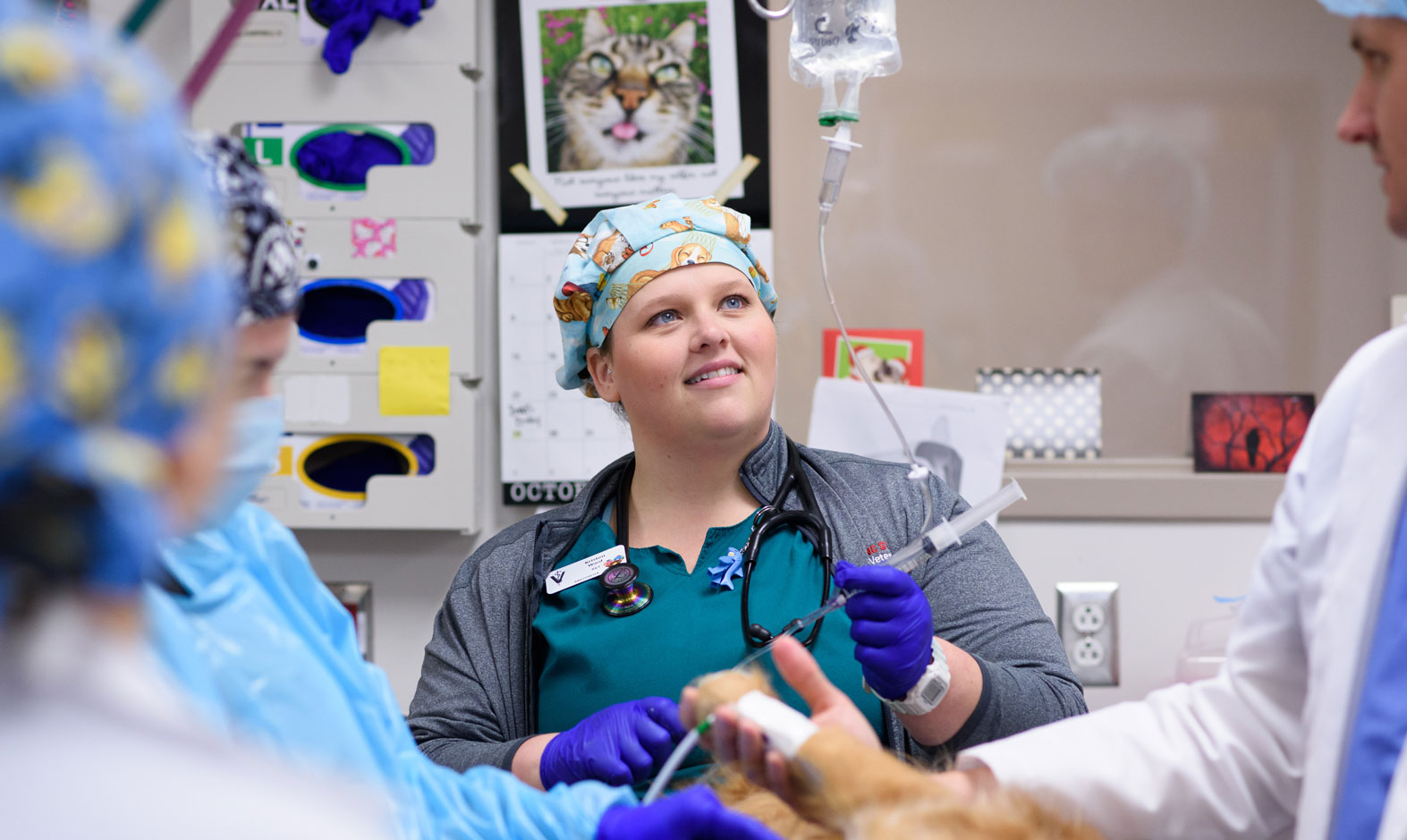National Veterinary Technician Week: Meet Kristen Ward

Today’s installment of our week-long series of profiles of veterinary technicians at the NC State Veterinary Hospital puts the spotlight on a critical area that doesn’t always get the attention it deserves: anesthesiology. In conjunction with National Veterinary Technician Week, which runs October 15-21, we speak with anesthesia technician Kristen Ward. Originally from Ahoskie, N. C., she is in her third year with NC State after five years with a private veterinary hospital in Charlotte.
What is your typical day like?
I’m assigned a case and I’m partnered with a fourth-year student from the College of Veterinary Medicine who I will be teaching what we do. We walk through how to approach the patient, depending on what kind of animal and what kind of case it is, and we will go through the protocols that we plan to use. Then we submit them to a senior anesthesiologist for approval. Then we go through all the preparation, and administering the anesthesia, monitoring conditions during the procedure, then helping the patient through the recovery process. We will usually do two or three cases a day, and we do all kinds of animals — dogs, cats, horses, cows, birds, tortoises, other exotics, it can be anything.
What is the most rewarding thing about your job?
For me, it’s teaching the students. They are with us for two weeks, and over that period we take them from nervous beginners to confident and comfortable in their abilities. It’s great to be able to help them on their way to becoming doctors. It’s also great to be able to help our patients — helping them to feel better after they come to us sick or injured, until we wake them up so they can go home.
What is the hardest part of your job?
The hardest part is euthanizing a patient who isn’t going to make it. Our job is keep them alive and make them better. We form a bond with them and their families, and it’s a heartbreaking decision when we have to let them go so they aren’t suffering any longer. It only happens a low percentage of the time, but sometimes it’s the best thing to do. Our job then is to support the family.
What made you want to go into this field?
I considered going into human medicine in nursing, and had to decide between that and becoming a vet tech. Part of the decision was that I love teaching, and that opportunity was there as a tech working at NC State. Here I have a lot of responsibility and the chance to share my knowledge. Not only are we caring for the patient, we’re helping to teach the students, residents and interns. It’s the perfect fit for me. I love it.
What is your most memorable professional experience?
I enjoy working on research projects, and last year I volunteered to help with a group of baby sea turtles — there were 10 to 15 of them. We were investigating how a certain medication affects the dive reflex, which determines how their circulatory system reacts. We spent the whole day with them, and I got to intubate them, learn how to give them drugs, and I loved them! They were later released back into the ocean, and I got to see video of that. It was all done to further science, and I got learn something, too.
[give url=”https://securelb.imodules.com/s/1209/giving/plain.aspx?sid=1209&gid=214&pgid=3813&cid=6343&appealcode=LB&bledit=1&sort=1&dids=6032″ headline=”Support Vet Techs” subheadline=”Continuing Education Fund” ]
~Steve Volstad/NC State Veterinary Medicine
- Categories:


